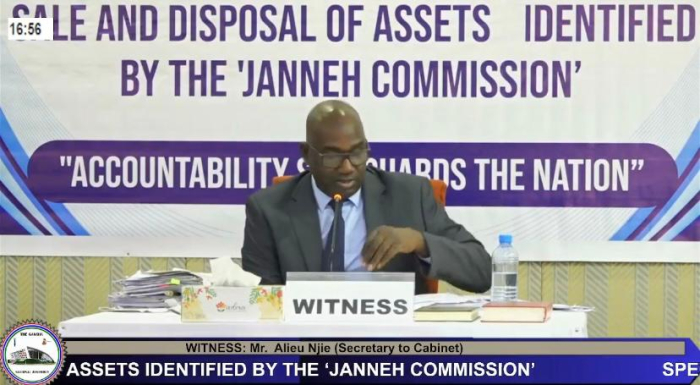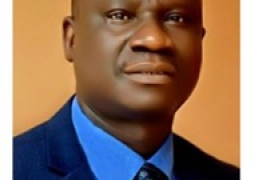
Njie admitted to gaps in documentation and confirmed that crucial decisions ostensibly taken at the highest level of government may have been made without a clear paper trail.
The proceedings took a dramatic turn when counsel demanded to know the basis upon which the Janneh Commission – a pivotal body that uncovered massive financial irregularities during Yahya Jammeh’s presidency - was formed. At the heart of the grilling was the absence of formal Cabinet minutes, approvals, or foundational documents explaining how the commission came to be.
Mr. Njie was confronted with a letter dated 30th June 2017, which established the commission. The document was signed by the president, but counsel questioned what informed its issuance. “Something must have advised the letter. It didn’t just write itself,” he argued.
When asked if such a directive could originate without cabinet input, Njie hesitated. “I don't want to speculate here and then come back and start apologizing,” he said, adding vaguely that decisions are usually deliberated within Cabinet and the Ministry of Justice would ordinarily prepare a Cabinet paper.
Pressed further, Njie admitted he had no knowledge of any prior Cabinet meeting that specifically discussed or approved the establishment of the Janneh Commission. The committee found this alarming, given the magnitude and legal gravity of the commission’s mandate.
In response, counsel formally requested all Cabinet minutes from January 19, 2017 the day President Barrow’s coalition government took office to the present day. The request aimed to uncover whether any proper procedure or discussion occurred to legitimise the commission’s creation.
Counsel also requested all reports submitted by institutions such as the Central Bank, SSHFC, Ports Authority, and Gamtel, which were mentioned in the legal notice establishing the Janneh Commission. These reports allegedly detailed significant withdrawals and expenditures from those state institutions during Jammeh’s regime, some for “unknown purposes.”
Mr. Njie is also tasked with documenting cabinet deliberations, admitted that some files were “open” and “confidential” but provided no indication of where those records are or whether they even exist. “Most of the information is very confidential. They come in information papers,” he explained.
Counsel expressed frustration over the lack of transparency and warned against attempts to withhold public-interest information under the guise of confidentiality. “If we see it is confidential, people outside might think we are trying to hide something,” he warned.
Despite being the Cabinet secretary, Mr. Njie’s evasiveness and uncertainty about standard procedures, including whether the president could act unilaterally without cabinet deliberations, raised eyebrows.
The committee has now issued a formal order for the production of all Cabinet minutes and associated reports tied to the establishment of the Janneh Commission.
Read Other Articles In Headlines




